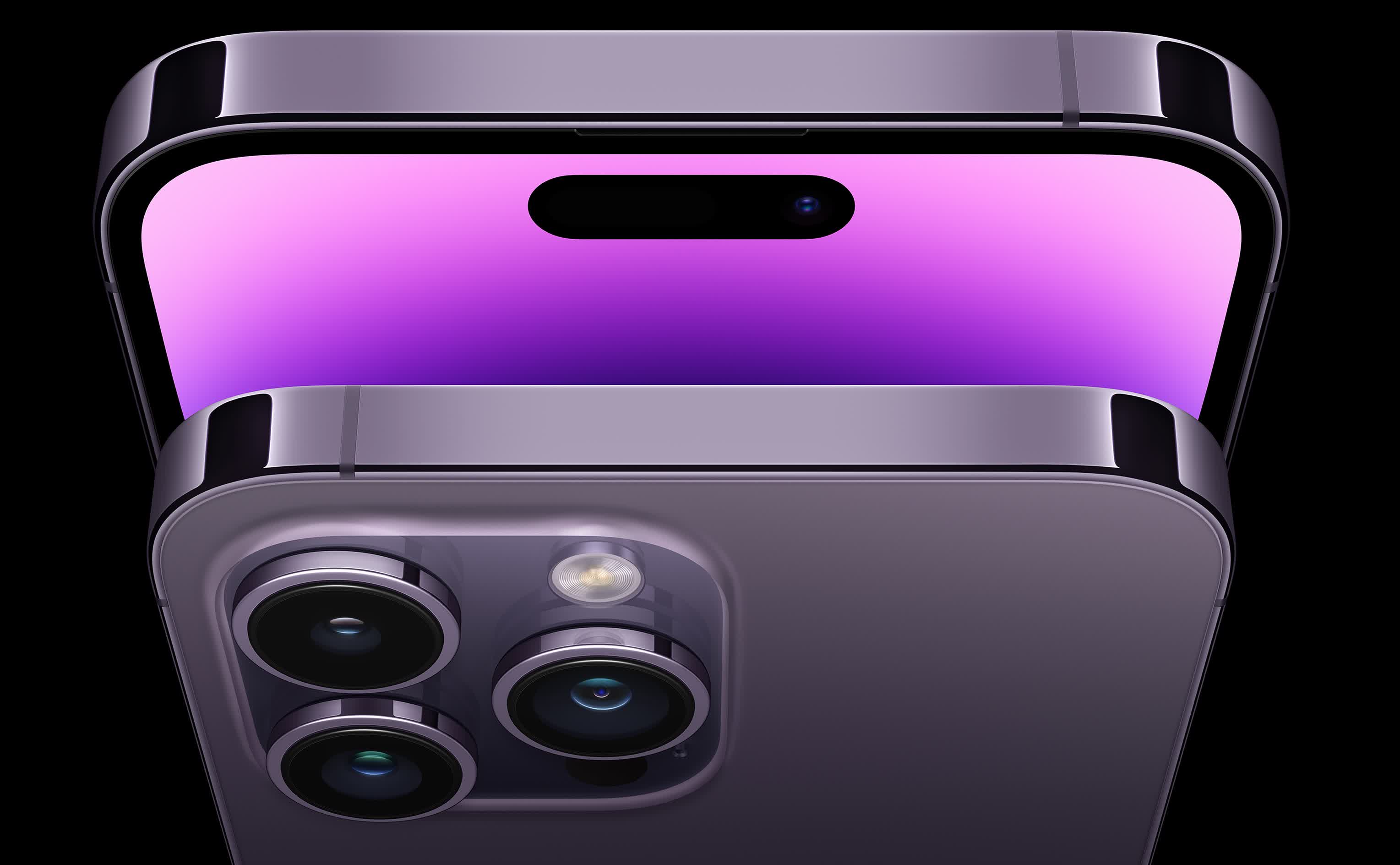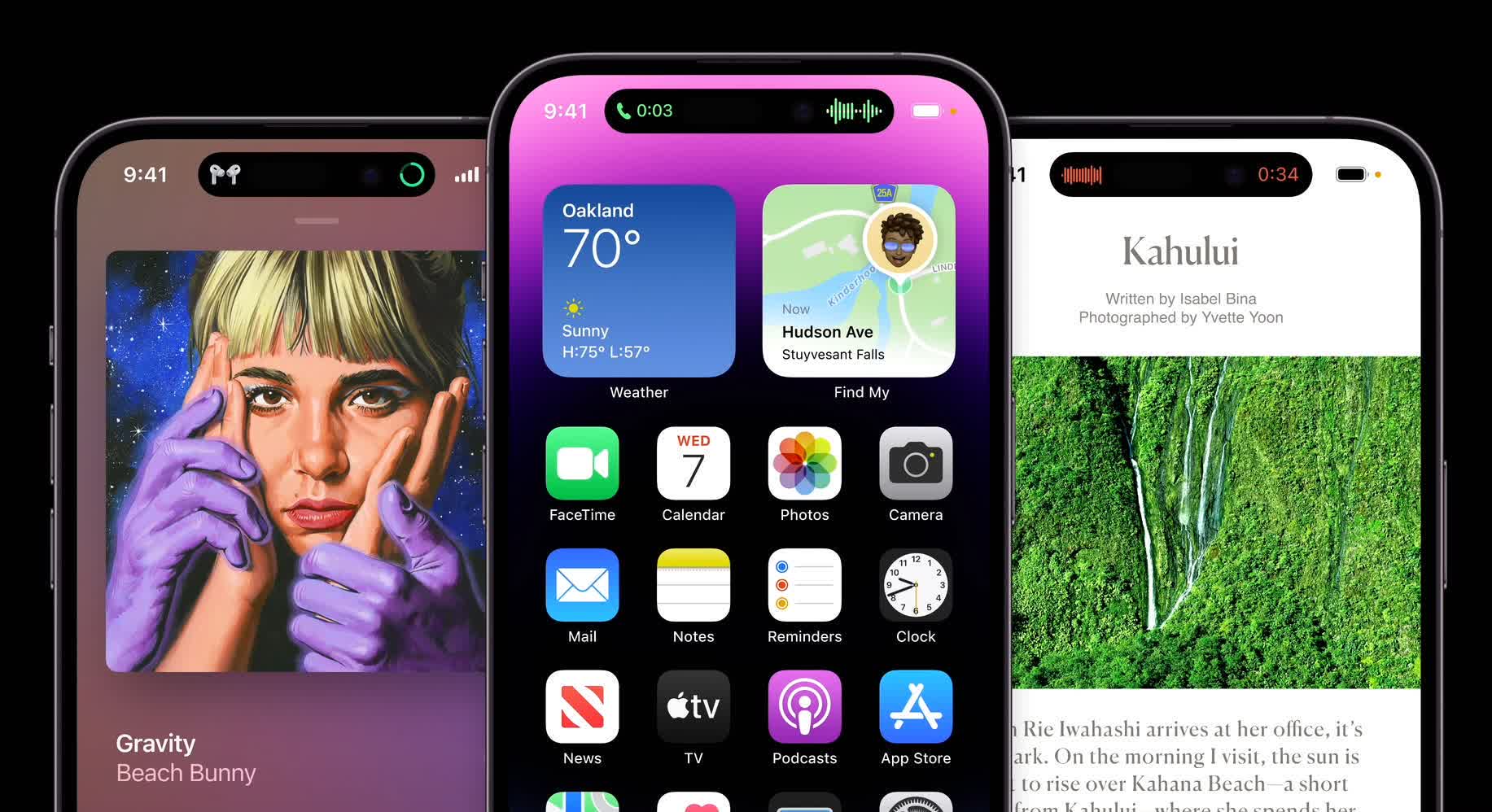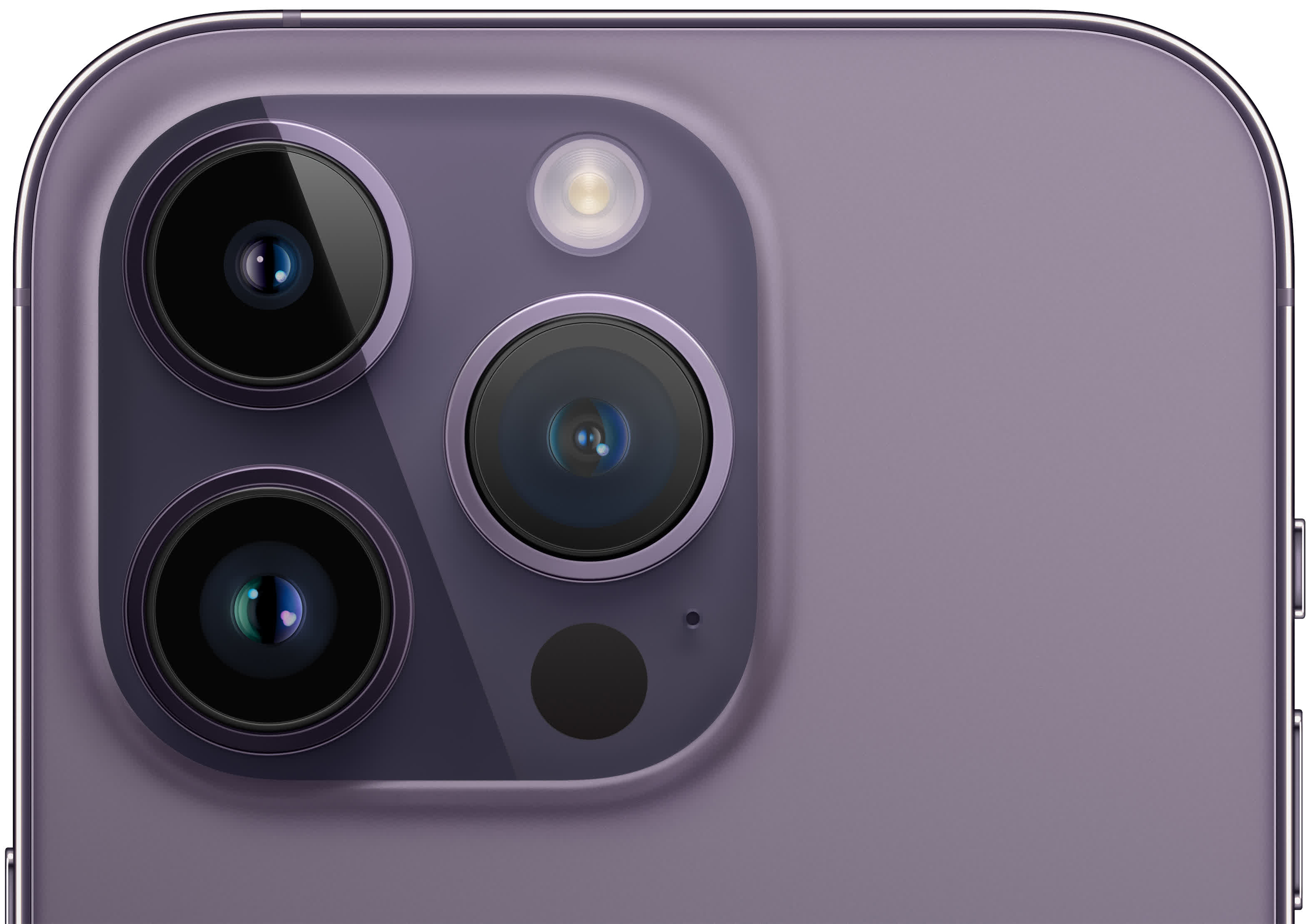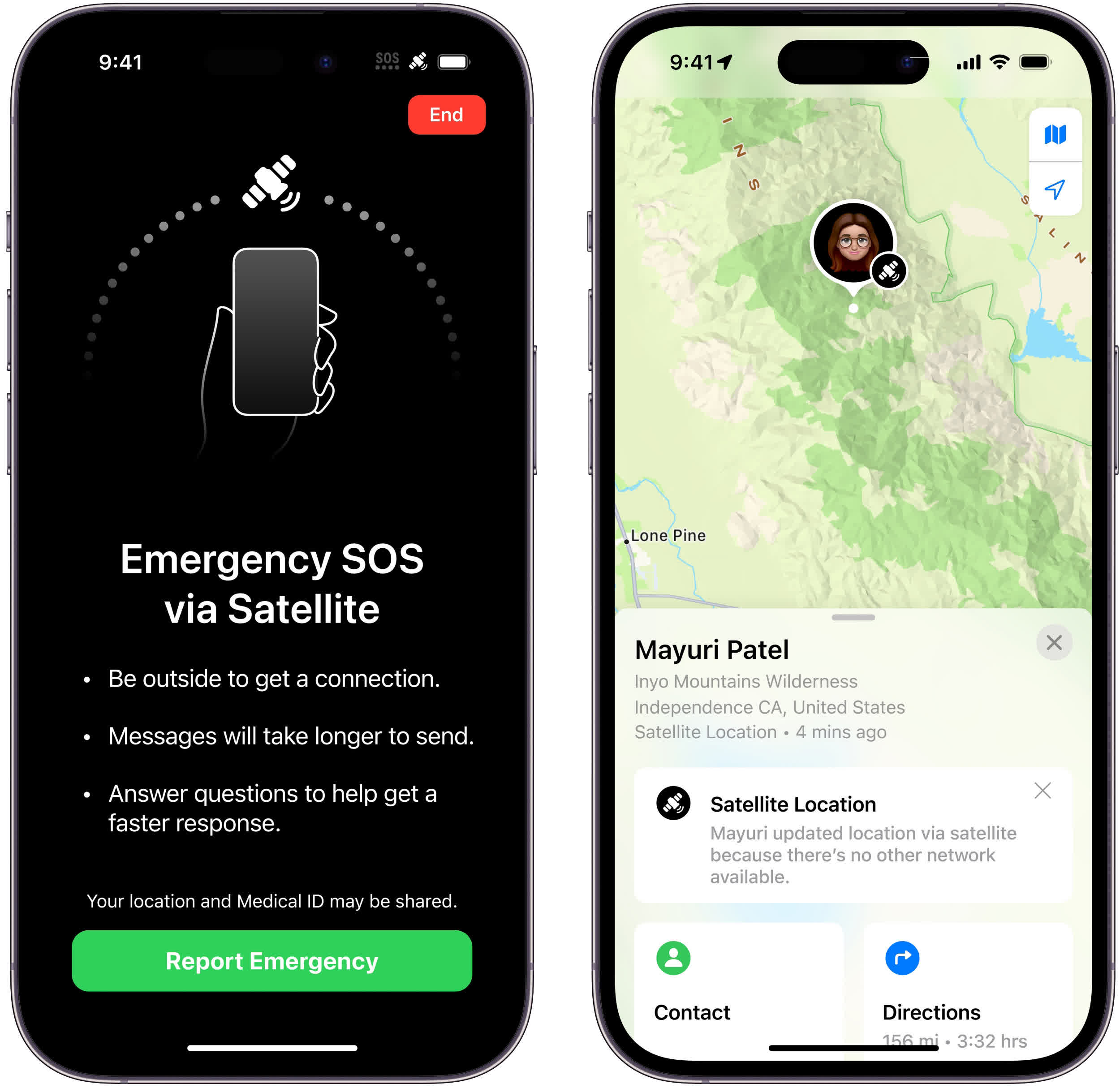What just happened? Apple just wrapped up its annual fall hardware event where it unveiled the new iPhone 14 lineup. As in years past, the new family of phones is divided into mainstream offerings and pro-grade solutions. The latter typically affords premium amenities like better cameras and greater storage capacity at a higher price point, and the same holds true this time around.
The iPhone 14 Pro features a 6.1-inch OLED display (2,556 x 1,179 pixels, 460 PPI) while the larger iPhone 14 Pro Max packs a 6.7-inch OLED panel (2,796 x 1,290 pixels, 460 PPI). Both models utilize a stainless steel edge design with a textured matte glass rear and a ceramic shield front coating.
Spec-wise, both offer 1000 nits of typical max brightness, 1600 nits of peak HDR brightness and up to 2000 nits of peak brightness outdoors. They also use Apple's ProMotion tech which can automatically adjust the screen's refresh rate from 1Hz to 120Hz depending on what is being displayed, either to conserve battery life or maximize fluidity.
New for 2022 is an always-on display that makes the time, widgets and other live activity available at a glance. The notch is now the Dynamic Island, a software-driven experience that consolidates notifications, alerts and activities into a single, shape-shifting space that adapts depending on the background activity using it.
Apple also redesigned the TrueDepth camera, making it 31 percent smaller to take up less space on the display.
Powering the iPhone 14 Pro series is the new A16 Bionic featuring a six-core GPU (two high-performance cores, four efficiency cores) that Apple claims is up to 40 percent faster than the competition. It's built on a 4nm process and packs nearly 16 billion transistors. The five-core GPU, meanwhile, has 50 percent more memory bandwidth than before while a new 16-core Neural Engine can perform nearly 17 trillion operations per second.
Notably, the A16 Bionic is only available in the Pro lineup. The standard iPhone 14 and iPhone 14 Plus are shipping with last year's A15 Bionic.
The rear-facing Pro camera system on the handsets is comprised of a 48-megapixel quad-pixel main camera that sits behind a seven-element, f/1.78 aperture lens. There's also a 12-megapixel ultra-wide camera with 13mm focal length, a 120-degree field of view and a f/2.2 aperture, six-element lens as well as a 12-megapixel, 77mm telephoto camera with f/2.8 aperture and six-element lens that offers 3x optical zoom.
Apple further touts a "fourth" camera, a 12-megapixel 2x telephoto that is enabled by cropping the quad-pixel sensor. A redesigned True Tone flash now features an array of nine LEDs that change pattern based on the focal length in use for optimal results. A sapphire crystal lens covering protects the rear elements.
Up front, there's a new TrueDepth 12-megapixel shooter with f/1.9 aperture, six-element lens that uses autofocus for the first time.
The new iPhone 14 Pro models also support Apple's Emergency SOS via satellite functionality. Launching in November and free for the first two years, the service will use satellites orbiting Earth to enable emergency messaging when outside of cellular or Wi-Fi coverage. The feature can also be used to manually share your location with Find My to provide a sense of security while hiking or camping off the grid.
Apple was expected to debut this feature last year with the iPhone 13 but it never materialized. T-Mobile and Starlink jointly announced a similar feature just a couple of weeks ago.
Another new safety-minded feature is crash detection, which relies on a dual-core accelerometer and a high dynamic range gyroscope to detect G-force measurements of up to 256G. Combined with existing components like the barometer and microphones, the feature can detect a crash and automatically dial emergency services on your behalf.
Battery life is rated at up to 23 hours of video playback on the iPhone 14 Pro and up to 29 hours on the iPhone 14 Pro Max. Both are fast-charge capable and can receive a 50 percent charge in about 30 minutes, and carry an IP68 rating against dust and liquids.
The iPhone 14 Pro and iPhone 14 Pro Max go up for pre-order on September 9 ahead of availability on September 16. Pricing starts at $999 for the iPhone 14 Pro and $1,099 for the iPhone 14 Pro Max with the entry-level 128GB storage option. Each is being offered in your choice of black, silver, gold or purple colorways with additional storage capacities at 256GB, 512GB and 1TB.



